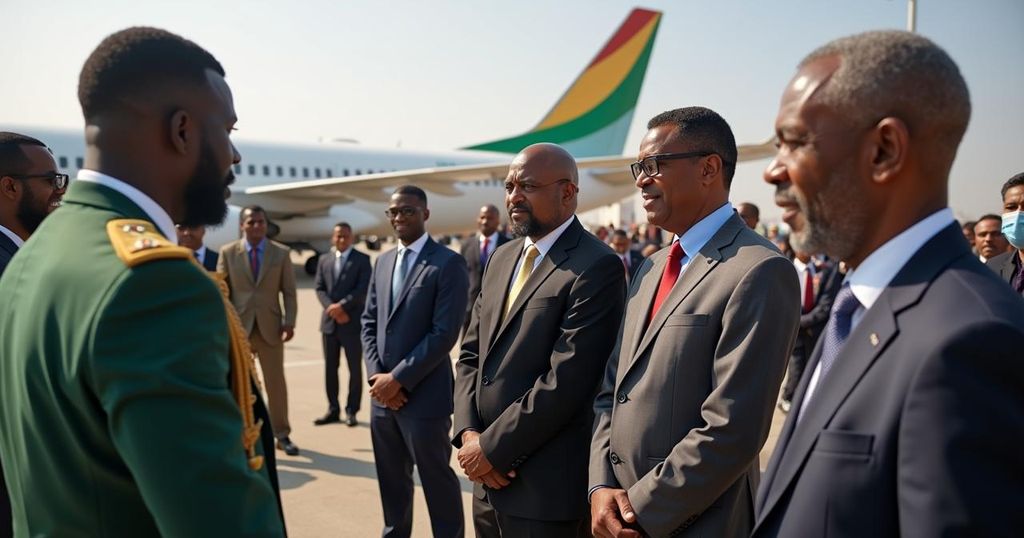African Union Delegation Departs Libya Amid East-West Political Strain

The African Union delegation led by Mauritania’s President departed Libya after eastern authorities denied their visit, following a controversial request by Prime Minister Osama Hammad for access to Libyan assets in Mauritania in exchange for influence over Wagner forces. The delegation’s absence in the eastern region emphasizes strained relations amid complex political dynamics in Libya.
The delegation of the African Union, led by Mauritanian President and current African Union Chairman Mohamed Ould Ghazouani, departed Libya after a brief visit of less than 24 hours that notably excluded the eastern region of the country. Political analyst Salah Al-Bakoush reported that eastern authorities refused to receive the delegation, particularly following a recent visit by the parallel government’s Prime Minister, Osama Hammad, to Mauritania. During this visit—which has been characterized as controversial—Mr. Hammad requested access to Libyan assets in Mauritania, including the Chinguitty Bank, previously known as the Libyan Bank in Nouakchott. In exchange for facilitating this access, Mr. Hammad reportedly suggested that Mauritania could assist in addressing concerns related to the Wagner forces, known for occasionally entering Mauritanian territory and allegedly sheltering rebel leaders from Mali. Mr. Hammad’s August visit was initially promoted by pro-government media as an official engagement, which prompted a clarifying response from the Mauritanian embassy in Tripoli. The embassy stated that the meeting between the President and Mr. Hammad was conducted at the latter’s request.
The African Union (AU) plays a pivotal role in addressing political issues within the African continent, including the ongoing conflict in Libya, which remains divided between rival governments in the east and west. The Mauritanian President’s visit to Libya reflects attempts to engage with both factions for stability in the region. The eastern authorities’ refusal of the AU’s delegation underscores the ongoing tensions and the complex political dynamics at play, particularly regarding foreign engagements in Libya’s internal affairs. The mention of the Wagner forces highlights the geopolitical challenges faced by Mauritania and Libya, notably concerning security and territorial sovereignty.
The refusal of eastern authorities to accept the African Union delegation marks an ongoing rift in Libyan politics, reflecting the complexities surrounding access to national resources and foreign influence. The interactions between Mauritania and the Libyan factions illustrate the broader implications for regional stability, particularly concerning engagements with international deterrents like the Wagner group. As Libya navigates its political landscape, the role of external actors, such as the African Union and Turkey, remains significant and contentious.
Original Source: libyaobserver.ly








